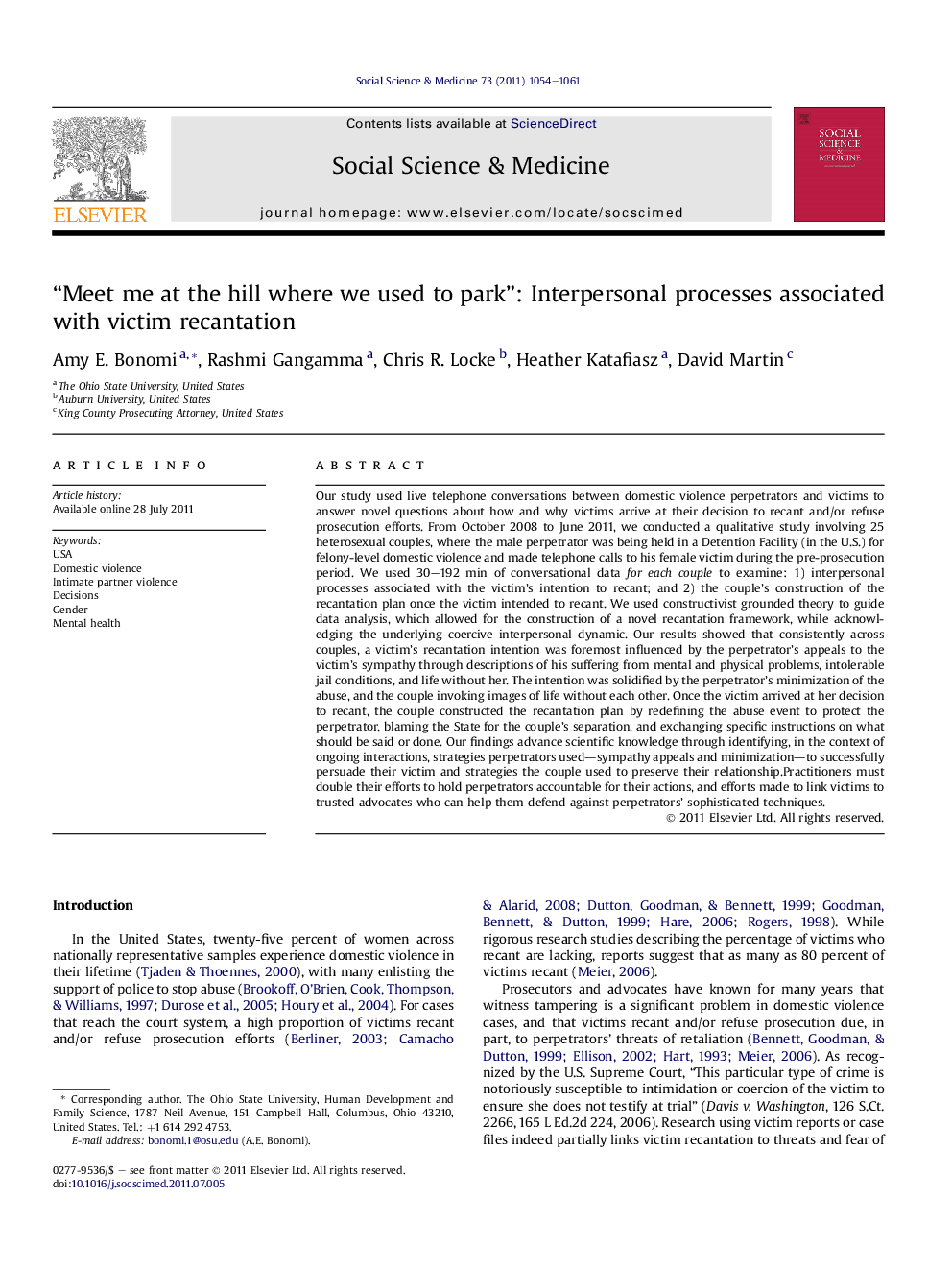| کد مقاله | کد نشریه | سال انتشار | مقاله انگلیسی | نسخه تمام متن |
|---|---|---|---|---|
| 952755 | 927538 | 2011 | 8 صفحه PDF | دانلود رایگان |

Our study used live telephone conversations between domestic violence perpetrators and victims to answer novel questions about how and why victims arrive at their decision to recant and/or refuse prosecution efforts. From October 2008 to June 2011, we conducted a qualitative study involving 25 heterosexual couples, where the male perpetrator was being held in a Detention Facility (in the U.S.) for felony-level domestic violence and made telephone calls to his female victim during the pre-prosecution period. We used 30–192 min of conversational data for each couple to examine: 1) interpersonal processes associated with the victim’s intention to recant; and 2) the couple’s construction of the recantation plan once the victim intended to recant. We used constructivist grounded theory to guide data analysis, which allowed for the construction of a novel recantation framework, while acknowledging the underlying coercive interpersonal dynamic. Our results showed that consistently across couples, a victim’s recantation intention was foremost influenced by the perpetrator’s appeals to the victim’s sympathy through descriptions of his suffering from mental and physical problems, intolerable jail conditions, and life without her. The intention was solidified by the perpetrator’s minimization of the abuse, and the couple invoking images of life without each other. Once the victim arrived at her decision to recant, the couple constructed the recantation plan by redefining the abuse event to protect the perpetrator, blaming the State for the couple’s separation, and exchanging specific instructions on what should be said or done. Our findings advance scientific knowledge through identifying, in the context of ongoing interactions, strategies perpetrators used—sympathy appeals and minimization—to successfully persuade their victim and strategies the couple used to preserve their relationship.Practitioners must double their efforts to hold perpetrators accountable for their actions, and efforts made to link victims to trusted advocates who can help them defend against perpetrators’ sophisticated techniques.
► Our analysis of telephone conversations showed that witness tampering is common in domestic violence cases.
► Male perpetrators foremost used sympathy appeals and minimization of the abuse to influence their female victims to recant.
► The couple invoking images of life without each other also influenced victim recantation.
► A paradigmatic shift is needed to acknowledge how both coercion and relationship needs influence recantation decisions.
Journal: Social Science & Medicine - Volume 73, Issue 7, October 2011, Pages 1054–1061